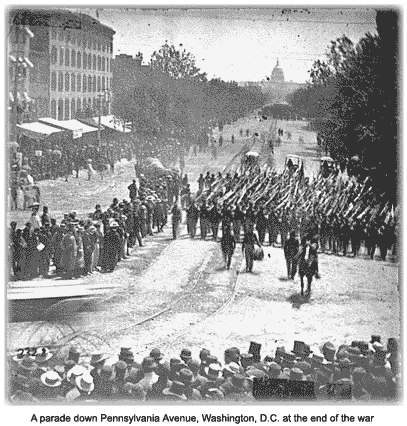The numerical superiority of the North was prominent during the Wilderness Campaign in the spring of 1864. The focus of the Virginia fighting shifted south of Richmond to the railroad center of Petersburg. An effort to create a diversion by means of a Threat to Washington was made by General Jubal A. Early.
The economic life of the South was made more difficult by David Farragut’s closing of Mobile Bay in August 1864.
The fall of Atlanta signaled Lincoln's victory in the Election of 1864. An effort by Confederate leaders to lure the Union army into Tennessee backfired with important Union victories at Franklin and Nashville. The Union conducted a massive effort to destroy Southern morale and support of the war by means of Sherman’s March to the Sea in November and December 1864.
The final major action occurred in Virginia, which showcased the talents of the two great generals — Grant versus Lee. An unsuccessful effort to bring peace was made at the Hampton Roads Peace Conference, but the war in Virginia was concluded at Appomattox Courthouse on April 9, 1865.
Lincoln was assassinated on April 14.
